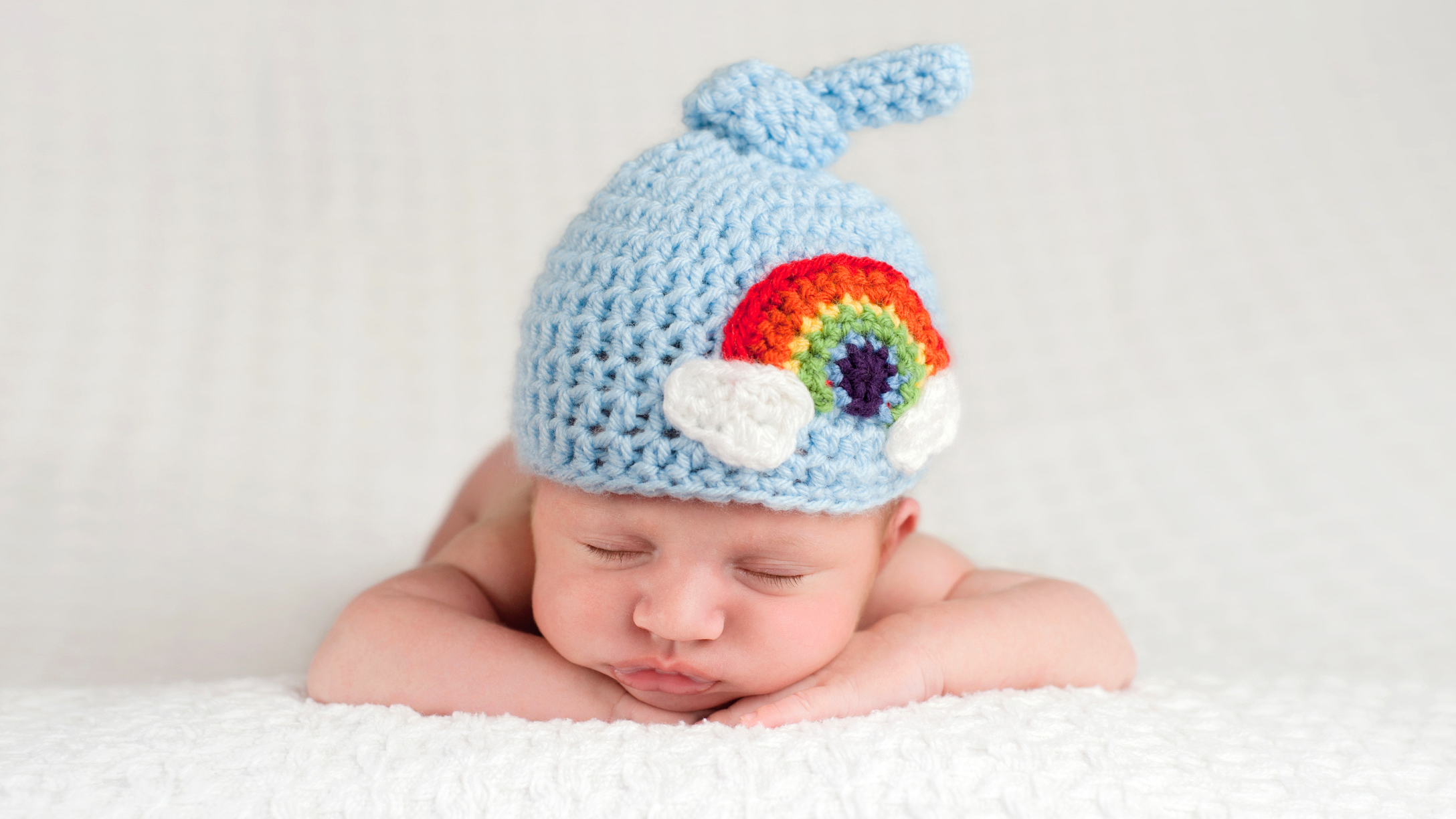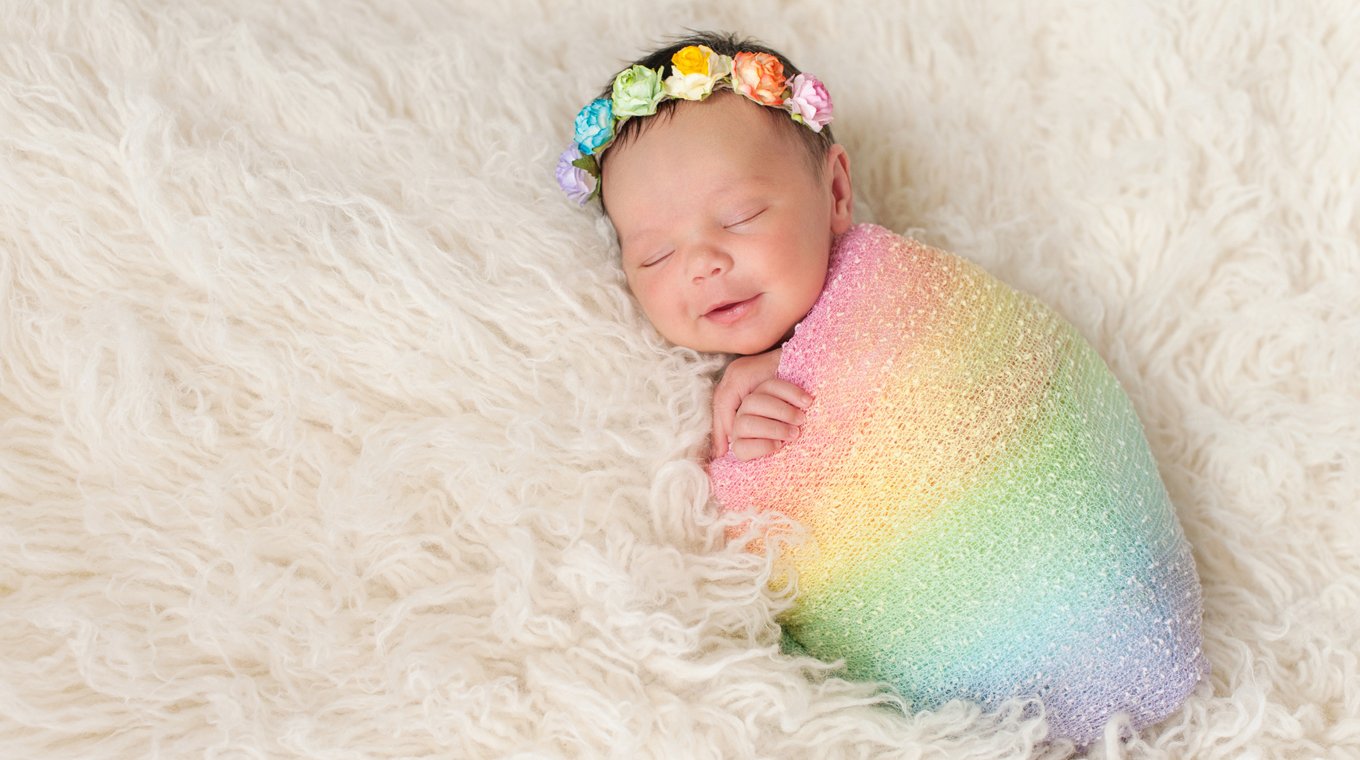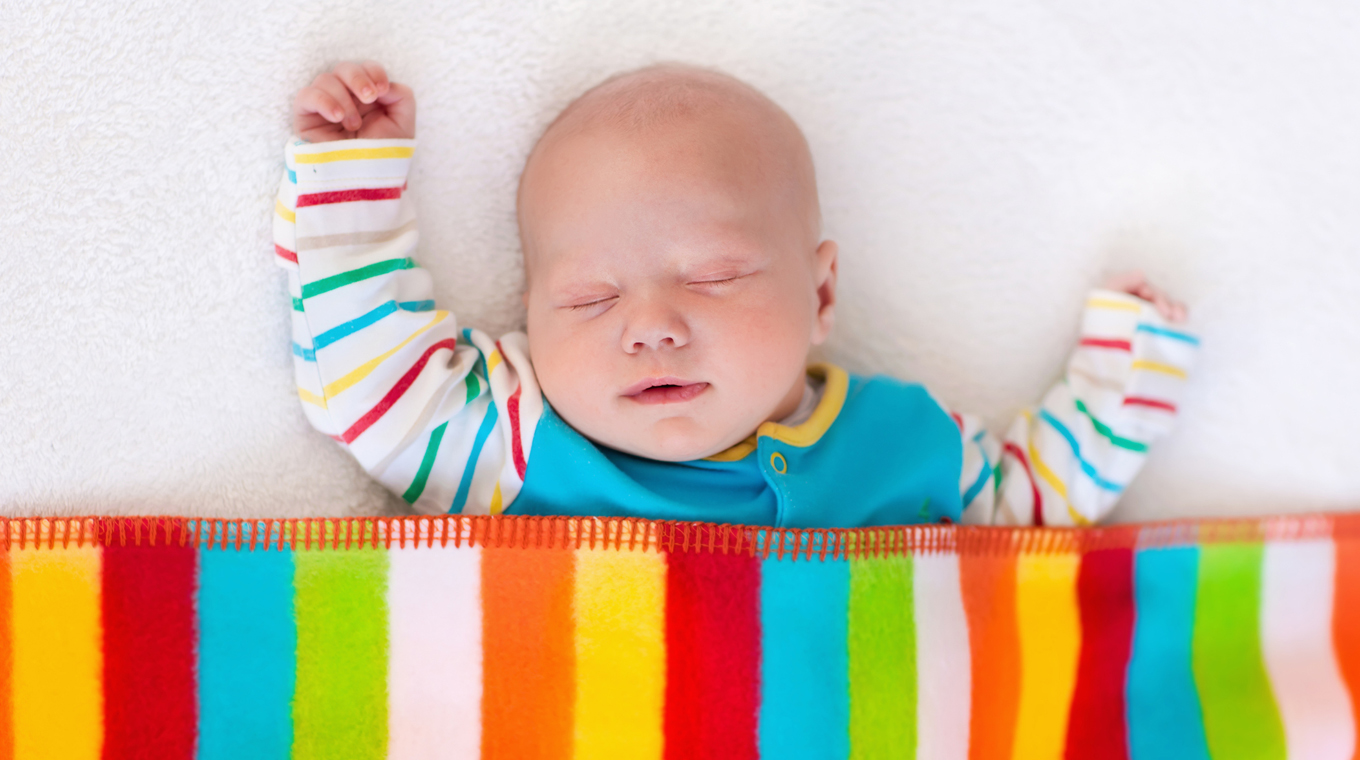
In this article
No matter the reasons or type of pregnancy loss — neonatal death, fetal death, or stillbirth — the emotional effects can be devastating. According to the March of Dimes, about 10 to 15% of pregnancies end in miscarriage.
But there is hope. At least 85% of people who become pregnant and experience pregnancy loss go on to have a rainbow baby, according to the American Pregnancy Association. Others may choose to adopt their rainbow baby. But, what is a rainbow baby, exactly?
Rainbow baby meaning and origin

The term “rainbow baby” was first coined in 2008. Christie Brooks’ book, Our Heartbreaking Choices: Forty-six Women Share Their Stories of Interrupting a Much-Wanted Pregnancy, chronicles pregnancy loss stories across the globe. The term “rainbow baby,” soon gained traction across the internet. Couples were able to find consolation in uplifting stories of healthy deliveries or successful adoptions after devastating pregnancy and infant loss.
Just as a rainbow emerges across the sky after a storm, a healthy baby born after a difficult pregnancy or one that ends in tragedy is a welcomed promise of hope for the future.
How to deal with loss of a child

If you’ve experienced loss and are now currently pregnant, you may be feeling a wide range of mixed emotions. Feelings can range from joy and sadness to stress and grief. It can be an overwhelming time and it’s important to understand that everyone grieves and heals differently, so whether you’re doing ok, are experiencing a mix of emotions or you’re just now quite sure how you feel, it’s totally normal.
Aimee Waters and her husband Tyson struggled with infertility and finally gave birth to a son, Beckett, who died at 26 weeks. Waters shared her subsequent pregnancy story on her YouTube channel in 2017, before the birth of her daughter, Mallory.
“I know that I shouldn’t feel guilty about getting pregnant so quickly, but I do,” Waters admitted in her video. “That doesn’t take away the joy of this pregnancy and it doesn’t take away the grief of missing Beckett. It’s just our lives have just gotten a little more complicated than they were before. Because now instead of one end of the spectrum we have both ends of the spectrum and we’re dealing with both feelings.”
If you’re experiencing prolonged stress, anxiety, or depression, speak to a counselor or mental health professional who can help if your symptoms are severe. Joining support groups — like those offered by Share Infant and Loss Support — can also help you work through your feelings.
Supporting a friend or family member
If a friend or family member has experienced the loss of a child, you may wonder how you can help. Social worker Leah Gooen suggests being authentic when consoling bereaved parents. You may not want to bring up the loss, but most parents will want to talk about their child.
“I’ve had couples in my support group say that it’s very meaningful to them when people ask them their child’s name, because they feel like they don’t really get to say it,” Gooen explained to Health Matters. “It’s so special to them to hear their child’s name said aloud.”
What is Rainbow Baby Day?

Alexis Delchiaro and her husband struggled with infertility for years. The couple now has two children, Grant and Gianna, but they wanted to let others know that they were not alone.
Delchiaro founded What the Fertility to help parents navigate the ups and downs of fertility. Rainbow Baby Day began in August 2018 to honor the birth of their daughter, Gianna.
However, not everyone is comfortable with the term, “rainbow baby.” Waters explained that she and her husband respect those who use the term, but that it just doesn’t resonate with them. The grief of their miscarriage didn’t just go away when they got a positive pregnancy test result.
“If you’re going to call that a storm, we’re still in our storm, we’re still dealing with losing Beckett and we will be our entire lives. It doesn’t really resonate with us because we’re still in it, and I really don’t want this child to be tied to Beckett that way,” Waters explained in her video. “I want this child to be its own unique child; it’s Beckett’s younger sibling. That’s the only tie I want, I don’t want one to be the after flow of the other.”




